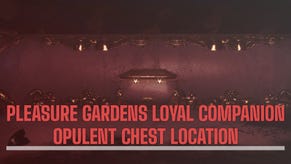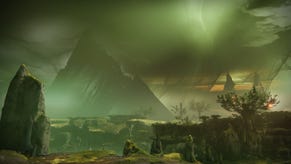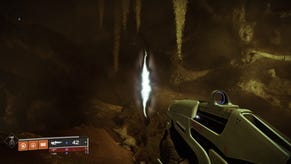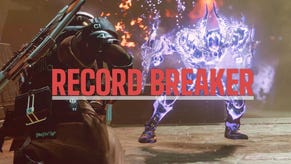Bungie on Destiny matchmaking: “We believe there’s no substitute for a pre-made team”
Crazy though this may seem, it's possible that Destiny shipped according to plan. History points to community as a crucial component, far from the contingency that many now suspect. Paul Davies spoke to Bungie for clarity.
"The community always engineers the best solutions for bringing players together. While Matchmaking is a great resource for introducing total strangers who can share a Crucible match or a Strike, we believe there’s no substitute for a pre-made team."
In January 1995, Bungie founder and lead programmer Jason Jones posted thus on comp.sys.mac.games and alt.games.marathon under the headline, 'The marathon vidmaster challenge':
"I challenge anyone who thinks they rule at Marathon to complete all of the game's levels on Total Carnage starting with only the pistol and x1 health (via Command-Option Begin Game). Upload your replays!"
Not an awful lot seems to have changed from Bungie’s point of view regarding player focus and the fun of inspiring an engaged fan base. Since Marathon in 1994, and after a decade of success with Halo through 2001-2010, lessons learned at Bungie are broader than difficulty tweaks and game modes pure and simple. The rise of social media changed the giver-receiver relationship irreversibly in all of entertainment, but in particular within gaming for better and famously worse. No studio or publisher wishing to ride popular opinion would be foolish enough to ignore it.
Destiny, at a glance, is arguably ‘missing features’ that would and should make it hang together better. Bungie’s solution has been to let the gaming community plug the holes, openly saying that this is all welcome while internally the studio seeks other ways to enhance the experience.
Looking back at how healthy the Halo community was under Bungie’s tenure, a stewardship running from Halo: Combat Evolved to Halo: Reach, it’s easier to accept Bungie’s present-day stance on Destiny. The studio’s weekly updates have included Community Focus articles since the third week after launch, introduced with the following message from CM David “DeeJ” Dague:
“One of the best things about the Destiny Community is that it supports itself. These acts of generosity go well beyond Guardians who arrive at Public Events to rescue their comrades from certain death... Questions asked by players are answered by players. Tactical intel for how to survive in the wild is shared far and wide.”
The founders of Reddit group ‘/r/DestinySherpa’, ‘Dames of Destiny’, ‘Dads of Destiny’ and 'LFG,’ are among those placed under the spotlight to answer questions about their services and how others can get involved. This substantiates Bungie’s mantra that Destiny isn’t simply a game that has a great community, but rather is an experience resulting from the community itself.
We approached Bungie for some explanations, and DeeJ was characteristically happy to oblige on the studio’s behalf.
He told VG27: “Bungie has always enjoyed a strong, active symbiosis with the player. Even when the community was hosted offsite, the Bungie Weekly Update began as a Friday afternoon strafing run on fan forums. There are Team Leads at the highest levels of the Bungie org whose origin stories started as players of our games. As far back as Myth, the community has enhanced Bungie games with their own contributions. They’ve been a crucial part of the development process for longer than most of us can remember.”
The question still hangs, however, over how much more Bungie could’ve/should’ve provided without leaning on the community for solutions to obvious needs. “The community always engineers the best solutions for bringing players together,” explains DeeJ. “While Matchmaking is a great resource for introducing total strangers who can share a Crucible match or a Strike, we believe there’s no substitute for a pre-made team. The most challenging activities in Destiny require communication and teamwork.”
"The goal is to provide them with proof that we’re hearing their wishes, but not so much proof that we spoil future experiences we’re creating for them – or make promises we might be able to keep on a long-enough timeline."
More specifically on the touchy subject of Matchmaking within Destiny itself, DeeJ further elaborates: “When like-minded players with complimentary play-styles seek each other out and make an expressed commitment to work together, the results are so much better than when they meet anonymously through a matchmaking algorithm. In our experience, enabling smaller clusters of players to support each other is far more effective than trying to create a system that works for everyone.”
So, is Bungie suggesting that fan activity was worked into the original plans for Destiny based on the studio’s experience with the Halo communities?
“The clans and alliances that the Bungie Community built on their own to team up and band together to enjoy some Halo multiplayer was a huge inspiration for how we enabled Destiny clans on Bungie.net,” clarifies DeeJ. “Our experiences with social interactions between players in our games also informed a lot of the decisions we made about voice communications. The goal was to create a deeply social experience in Destiny, but still give people control over who they would hear while they played. We wanted to enable Guardians to talk to each other, but only when they chose to do so.”
At this point it might appear that we have a ‘tail wagging the dog’ scenario, whereas players might reasonably expect the creators to have the first clue. According to DeeJ, the deal is designed to be mutually beneficial. “We learn so much by observing the player and listening to their feedback. Including them in the process makes our work that much better, so keeping the conversation rolling is in our best interests,” he says. “There are people in the community constantly demanding even more transparency from us, which leads to the question that you’re asking about balance. The goal is to provide them with proof that we’re hearing their wishes, but not so much proof that we spoil future experiences we’re creating for them – or make promises we might be able to keep on a long-enough timeline. Overall, it’s a conversation we enjoy, because we’re also players of our games.”
In the console space, Bungie is pioneering the transition from boxed-product finite challenges to evolving experiences that are work-in-progress by nature. Community is an extended DNA of studio values, this much is clear, and remains answerable directly via Bungie.net. The “come and have a go if you think you’re hard enough” attitude at Bungie is an open invitation to speak your mind and prove your worth. How much this translates into games for the greater good is open to discussion.
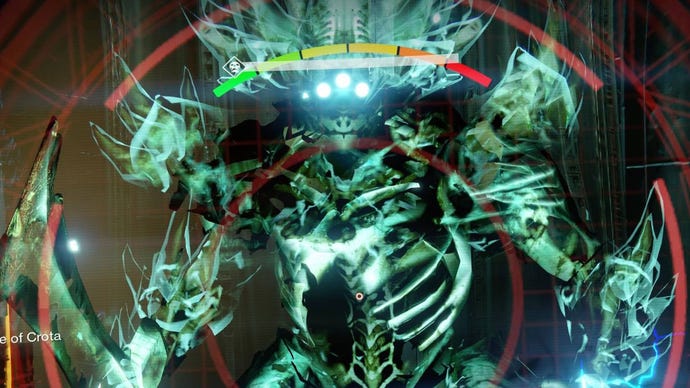


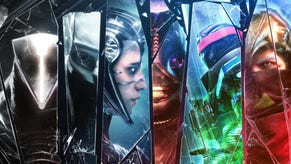

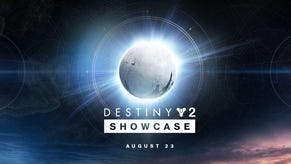
.jpg?width=291&height=164&fit=crop&quality=80&format=jpg&auto=webp)
